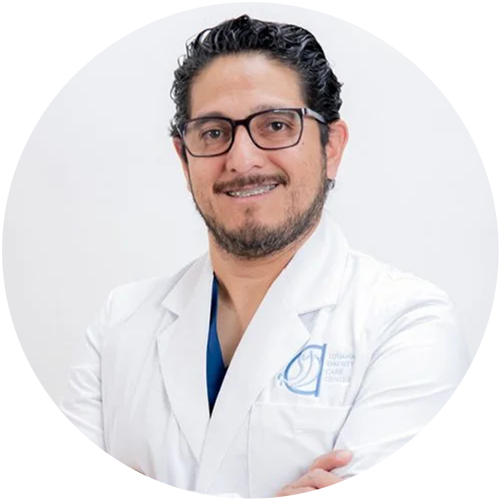One of the most common questions patients ask before undergoing weight loss surgery is, “How long is gastric bypass recovery?” Understanding the recovery timeline for gastric bypass surgery is crucial for proper preparation and achieving optimal results. At Tijuana Obesity Care Center, we believe in providing our patients with comprehensive information about their weight loss journey, including what to expect during each phase of recovery.
Overview of Gastric Bypass Surgery
Gastric bypass surgery, also known as Roux-en-Y gastric bypass, is one of the most effective bariatric procedures for achieving significant weight loss. The surgery involves creating a small pouch from the stomach and connecting it directly to the small intestine, bypassing a large portion of the stomach and part of the small intestine.
Before diving into the recovery timeline, it’s important to understand that each patient’s recovery experience may vary. Factors that can affect recovery time include:
- Overall health condition
- Age
- Body mass index (BMI)
- Adherence to post-operative guidelines
- Type of surgical technique used
- Individual healing capacity
Who Qualifies for Gastric Bypass Surgery?
To ensure a smooth recovery process, proper patient selection is essential. Candidates for gastric bypass surgery typically include:
- Individuals with a BMI of 50 or higher
- People with a BMI of 45-39.9 with obesity-related health conditions
- Patients who have attempted other weight loss methods without success
- Those committed to making long-term lifestyle changes
- Individuals with realistic expectations about recovery and results
Week-by-Week Recovery Timeline
Immediate Post-Op (Days 1-3)
Your initial recovery begins with a 1-day hospital stay in a private room equipped with specialized bariatric equipment. During this time, you’ll receive constant monitoring from our dedicated medical team, with vital signs checked regularly and pain management carefully controlled through IV medications, transitioning to oral pain medications as appropriate.
Early mobility is essential, and you’ll begin taking short, assisted walks within 4-6 hours after surgery. Your diet will be strictly limited to clear liquids, taking small sips of water, sugar-free clear broths, and decaffeinated beverages. You’ll also learn important breathing exercises using an incentive spirometer to prevent complications and ensure optimal recovery.
Week 1
As you transition home, you’ll continue the clear liquid diet but gradually increase intake to 2-3 oz per hour, including protein water and sugar-free electrolyte drinks. Physical activity increases to include 5-10 minute walks every few hours while awake, though you’ll need plenty of rest periods and should sleep with your head elevated.
Your care routine will focus on proper incision care, pain management with prescribed medications, and careful monitoring of your recovery progress. Our team provides detailed instructions and remains available for any concerns that arise during this crucial first week at home. Most patients return to their regular work schedule and social activities during this period.
Week 2
Your diet advances to full liquids, including protein shakes, strained cream soups, and sugar-free yogurt drinks, with a goal of 20-30g of protein daily. Physical activity increases to 15-20 minute walks twice daily, and you can begin light stretching exercises and normal household movements as comfort allows.
Most patients notice significantly reduced pain during this week, often switching to over-the-counter pain medications. You’ll likely feel ready to resume light daily activities, including personal groking and short car rides as a passenger, though it’s important not to overexert yourself.
Weeks 3-4
This period marks an exciting transition to pureed foods, including blended protein-rich foods, soft scrambled eggs, and strained vegetables. Your activity levels will continue to increase, with 20-30 minute walks becoming comfortable, and many patients can return to office work part-time with regular break schedules.
Your focus during these weeks should be on reaching protein intake goals of 60-80g daily and establishing proper eating habits. You’ll notice increased energy levels and greater comfort with daily activities, though it’s important to continue following all post-operative guidelines.
Weeks 5-6
Your diet expands to include soft foods such as ground meats, well-cooked vegetables, and soft-boiled eggs. Physical activity increases significantly, with 30-minute daily walks and the potential to begin light strength training if approved by your surgical team.
You’ll notice substantially improved energy levels and reduced fatigue, making it easier to maintain your new healthy lifestyle habits. Regular check-ups with your medical team ensure your recovery continues to progress as expected.
Weeks 7-8
This period typically marks the transition to regular textured foods, focusing on lean proteins and proper portion sizes. Your activity levels can increase to include regular exercise routines, including cardio and light weight training as approved by your healthcare team.
Most patients experience visible weight loss results during this time, with looser clothing and noticeable changes in body measurements. Your energy levels continue to improve, supporting full participation in normal daily activities.
Beyond 8 Weeks
By this point, you’ll have established a regular diet of 3-4 small, nutrient-dense meals daily, maintaining proper hydration and supplementation. Your physical activities can include a full range of exercises, from strength training to cardiovascular activities and recreational sports, as approved by your healthcare team.
This marks the transition into long-term lifestyle management, focusing on sustainable habits that support your weight loss journey. Regular follow-up appointments and support group participation help ensure your continued success.
Benefits of Proper Recovery Management
Following the recommended recovery timeline offers numerous benefits:
- Reduced risk of complications
- Optimal weight loss results
- Better adaptation to new eating habits
- Improved overall health outcomes
- Successful long-term weight maintenance
- Enhanced quality of life
- Prevention of nutritional deficiencies
Insurance Coverage and Recovery Support
Many insurance providers cover gastric bypass surgery and associated recovery care. At Tijuana Obesity Care Center, we assist patients in understanding:
- Coverage for the surgical procedure
- Post-operative care coverage
- Follow-up visit coverage
- Nutritional counseling benefits
- Required documentation for claims
- Options for self-pay patients
- Payment plan possibilities
Tips for Successful Recovery
- Follow Medical Instructions
- Take all prescribed medications
- Attend all follow-up appointments
- Follow dietary guidelines strictly
- Monitor vitamin intake
- Physical Activity
- Start slowly with walking
- Gradually increase activity levels
- Avoid heavy lifting for 6-8 weeks
- Listen to your body’s signals
- Nutrition Guidelines
- Stay hydrated
- Focus on protein intake
- Take prescribed supplements
- Eat slowly and mindfully
- Track food intake
- Mental Health Support
- Join support groups
- Maintain regular communication with healthcare team
- Set realistic expectations
- Celebrate small victories
Professional Support During Recovery
At Tijuana Obesity Care Center, we provide comprehensive support throughout your recovery:
- 24/7 emergency contact
- Regular check-ups
- Nutritional counseling
- Support group access
- Telehealth options
- Personalized recovery plans
- Long-term follow-up care
Find more information about Gastric Bypass Recovery by speaking to one of our experts.
Recovery from gastric bypass surgery is a journey that requires patience, dedication, and proper support. While the initial weeks may present challenges, following the prescribed timeline and guidelines leads to successful outcomes. At Tijuana Obesity Care Center, we’re committed to supporting you through every stage of your recovery journey.
Are you considering gastric bypass surgery? Let our experienced team at Tijuana Obesity Care Center guide you through your weight loss journey. We offer comprehensive support from pre-surgery preparation through complete recovery and beyond.
Learn more about our gastric bypass surgery program and recovery support services. Contact us today to schedule a consultation and take the first step toward your new life. Remember, successful recovery is a partnership between you and your healthcare team. Let us help you achieve your weight loss goals safely and effectively.
Author
-

Dr. Victor Cabrera, a cardiovascular anesthesiologist at Tijuana Obesity Care Center, plays a key role in ensuring the success of the center’s bariatric surgeries. With over a decade of experience, he has helped numerous patients achieve life-changing weight loss through safe and effective procedures. His expertise in cardiovascular anesthesiology, honed at prestigious institutions like the Texas Heart Institute, allows him to provide top-tier care during bariatric surgeries. Dr. Cabrera is dedicated to upholding the highest standards in patient safety, making Tijuana Obesity Care Center a trusted destination for weight loss surgery.
View all posts


